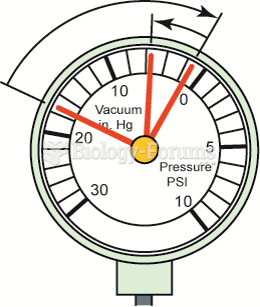|
|
|
Approximately 15–25% of recognized pregnancies end in miscarriage. However, many miscarriages often occur before a woman even knows she is pregnant.
The tallest man ever known was Robert Wadlow, an American, who reached the height of 8 feet 11 inches. He died at age 26 years from an infection caused by the immense weight of his body (491 pounds) and the stress on his leg bones and muscles.
Illicit drug use costs the United States approximately $181 billion every year.
According to research, pregnant women tend to eat more if carrying a baby boy. Male fetuses may secrete a chemical that stimulates their mothers to step up her energy intake.
Always store hazardous household chemicals in their original containers out of reach of children. These include bleach, paint, strippers and products containing turpentine, garden chemicals, oven cleaners, fondue fuels, nail polish, and nail polish remover.
 If the needle drops 1 or 2 inches Hg from the normal reading, one of the engine valves is burned or ...
If the needle drops 1 or 2 inches Hg from the normal reading, one of the engine valves is burned or ...
 A needle that drops to near zero when the engine is accelerated rapidly and then rises slightly to ...
A needle that drops to near zero when the engine is accelerated rapidly and then rises slightly to ...





